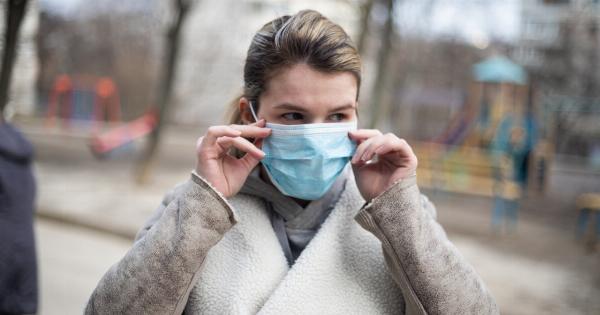Winter is a wonderful season that brings cold temperatures, beautiful snowfall, and cozy nights by the fireplace. However, it is also prime time for illnesses and infections.
The winter sickness season refers to the period of time during which many people experience higher rates of illnesses and infections. In this article, we will explore why the winter sickness season occurs and the different factors that contribute to it.
The Role of Viruses
One of the main reasons why the winter sickness season occurs is the prevalence of viruses during this time. Viruses such as the common cold, influenza, and respiratory syncytial virus (RSV) spread more easily in colder environments.
The lower temperature and humidity in winter create ideal conditions for these viruses to survive and thrive. Additionally, people tend to spend more time in enclosed spaces during winter, increasing the chances of viral transmission.
Reduced Sunlight Exposure
Another factor that plays a role in the winter sickness season is reduced sunlight exposure. During winter, days are shorter, and people spend less time outdoors.
This limited exposure to sunlight leads to a decrease in the production of vitamin D in the body. Vitamin D plays a crucial role in maintaining a strong immune system, so a deficiency can make individuals more susceptible to infections and illnesses.
Indoor Air Quality
The quality of indoor air during winter also contributes to the prevalence of illnesses. As people spend more time indoors and close windows to keep warm, the air becomes stagnant and can harbor bacteria, dust mites, and other allergens.
This can trigger respiratory issues such as asthma and allergies, making individuals more vulnerable to infections.
Compromised Immune System
During winter, our immune system can become more compromised due to various factors. The cold weather can constrict blood vessels and reduce blood flow, making it harder for immune cells to reach infected areas.
Additionally, the stress associated with the holiday season, lack of sleep, and unhealthy eating habits can weaken the immune system. This weakened defense system leaves individuals more susceptible to illnesses.
Dry Winter Air
Winter is notorious for its dry air, which can have negative effects on our respiratory system. The cold air lacks moisture, causing our nasal passages and airways to become dry.
This dryness makes it easier for viruses and bacteria to invade our bodies through these compromised barriers. It also leads to throat irritation and coughing, further increasing the risk of infections.
Increase in Indoor Gatherings
Winter is a time of celebrations, family gatherings, and holiday parties. This increase in indoor gatherings and close contact with others provides more opportunities for viruses to spread from person to person.
Sharing utensils, touching contaminated surfaces, and close proximity in crowded spaces increase the likelihood of transmission, leading to a higher incidence of illnesses.
Decreased Physical Activity
Colder temperatures and harsh weather conditions discourage many people from engaging in physical activity during winter. This reduction in exercise can have negative effects on overall health and immune function.
Regular physical activity has been shown to boost the immune system, so a decrease in activity levels during winter can make individuals more susceptible to illnesses.
Immune Response to Cold Temperatures
Exposure to cold temperatures can directly impact our immune response. Cold weather causes blood vessels in the nose and throat to constrict, reducing blood flow to these areas.
This constriction can impair the function of immune cells, making it harder for them to fight off infections. The body’s defense mechanisms may also be weakened, allowing viruses and bacteria to multiply and cause illness more easily.
Poor Hand Hygiene
During the winter sickness season, poor hand hygiene practices play a significant role in the spread of illnesses. Cold weather can cause dry skin, leading to cracks and fissures where germs can enter the body.
Additionally, people may not wash their hands as frequently or effectively due to the discomfort of cold water. This lack of proper hand hygiene increases the likelihood of viral and bacterial infections.
Overcrowded Hospitals and Healthcare Facilities
Winter illnesses often lead to overcrowded hospitals and healthcare facilities. The surge in respiratory infections, flu cases, and other seasonal illnesses puts a strain on medical resources.
Overcrowding can promote the spread of infections, and patients with weakened immune systems may be more susceptible to picking up additional illnesses while seeking treatment. This overcrowding further contributes to the winter sickness season.
Conclusion
The winter sickness season is a time when illnesses and infections are more prevalent due to various factors such as the spread of viruses, reduced sunlight exposure, poor indoor air quality, and compromised immune systems.
It is important to take preventive measures such as practicing good hand hygiene, maintaining a healthy lifestyle, and getting vaccinated to reduce the risk of falling ill during this season. By understanding the reasons behind the winter sickness season, individuals can better protect themselves and promote their overall well-being.































